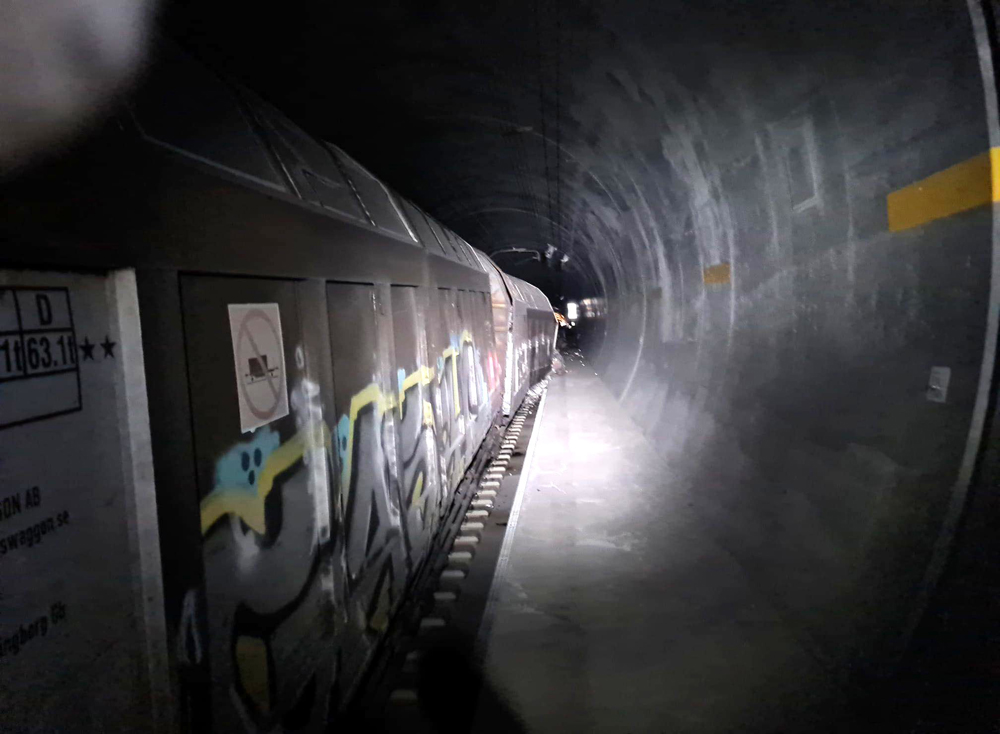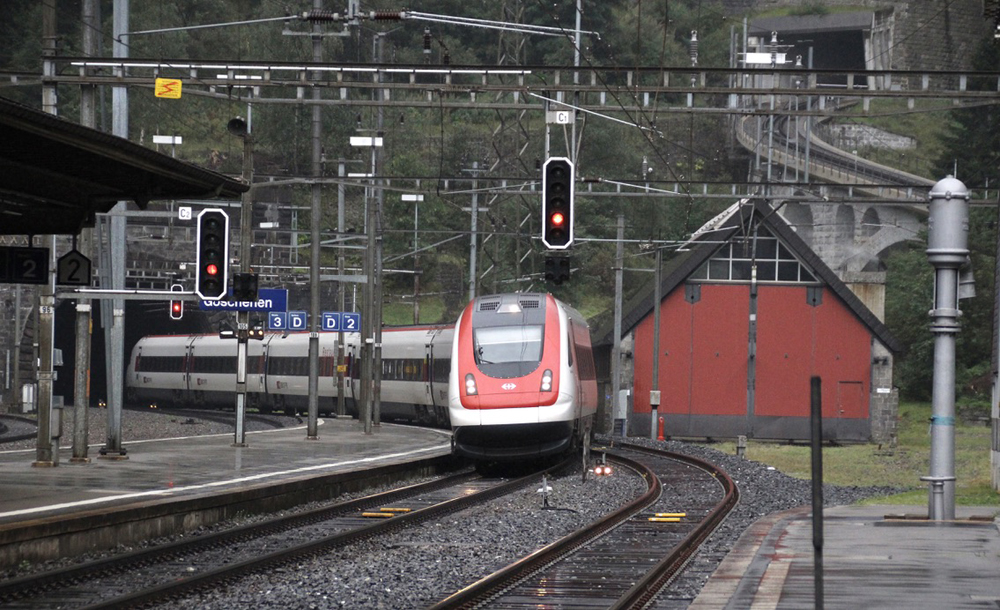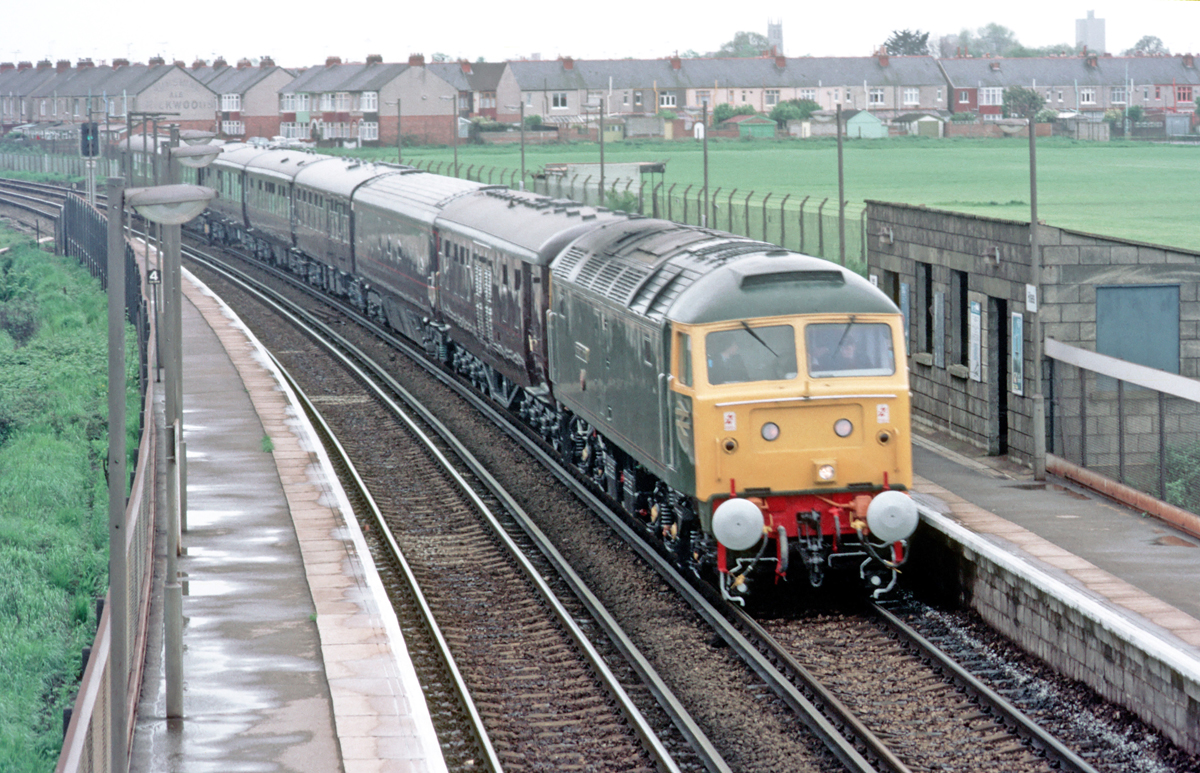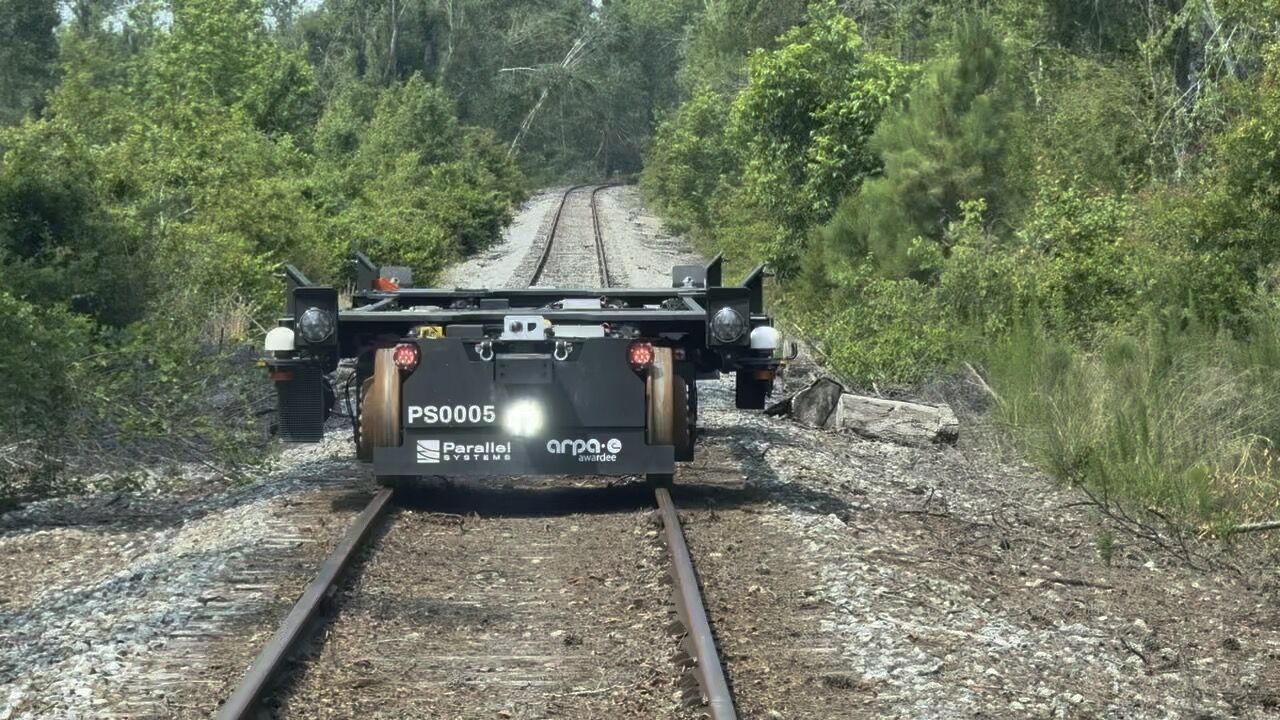
Rail operations in Switzerland have been disrupted by a derailment in the Gotthard Base Tunnel, the world’s longest rail tunnel.
The English-language Swiss news site TheLocal.ch reports the derailment involving a freight occurred about noon Thursday at the Faido multifunction station, one of two locations within the 35.5-mile-long tunnel including emergency-stop facilities and ventilation equipment.
Bloomberg reports a spokeswoman for SBB, the Swiss Federal Railways, has told Swiss public broadcaster SRF that “the damage is considerable” and that the tunnel will remain closed until at least Aug. 16.
Some passenger trains that normally travel through the tunnel are being diverted over the historic Gotthard Pass route, which will add about an hour to their travel time. At least initially, others are being cancelled. That route now normally sees only about one passenger train each way per hour, plus a seasonal tourist train. An advisory on the SBB website updated today (Friday, Aug. 11; in German) says that the derailment damaged track, including switch equipment. “This safety-relevant device is required to separate the two tunnel tubes,” the advisory says, and without it, trains cannot use the second, undamaged tunnel tube. It will be at least midnight on Aug. 14 before freight traffic can use the tunnel and at least midnight on Aug. 16 before passenger trains can return to the route. In the interim, passenger traffic will use the older line; for international travelers, this will add two hours to the trip because of the need to change trains at Chiasso.
SBB is “urgently recommending” postponement of non-essential rail travel on the route because of limited connections and capacity. It also says it cannot yet offer precise information on the cause of the derailment as the Swiss Safety Investigation Board and canton officials are continuing their investigation. The site has not yet been released by authorities for cleanup and repair work.
A Swiss rail website, Bahnonline.ch, reports some cars in the derailed train involved hazardous materials, according to local police, although no leaks were reported; the train’s driver was evacuated using the tunnels’ firefighting and rescue train. Bloomberg reports an emergency team is working to reroute freight traffic, including sending some freight trains over the historic route. The latest SBB update that while some freight will be rerouted via the panoramic route, most will be rerouted via the Lötschberg-Simplon route to the west or held at its point of origin until the Gotthard Base Tunnel reopens.
The tunnel is a major trans-European route for both freight and passenger traffic. In the first year after its opening in 2016, it saw up to 165 freight trains per day and handled an average of 11,000 passengers daily. For more on the tunnel, see “The Hole Truth” in the February 2017 Trains.
— Updated Aug. 11 at 7:35 a.m. CDT with new statement from SBB and additional details; updated at 9:30 p.m. CDT with additional freight information.















Recently, the SBB/CFF/FFS specified that the accident was caused by an issue with the 32-rail car convoy and not with the infrastructure.
Dr. Güntürk Üstün
The SBB will surely be working to ensure that similar accidents do not occur in the future.
Dr. Güntürk Üstün
This is quite a significant line on the Rhine-Alpine Corridor, as it links Milan, in Italy, with Zurich, in Switzerland.
Dr. Güntürk Üstün
The Gotthard Base Tunnel is a double track twin bore tunnel to mostly replace the original Gotthard Lline which had steep grades, a great deal of curvature and a much shorter tunnel near the summit. Think of GN replacing the first Cascade Tunnel with the current one.
Although there are two bores, there are galleries containing crossovers and apparently one of those is affected and neither line can be used.
Tunnels are always a bad place to deal with a derailment: everything has to come in from one end or the other; there’s no place to stash things, and cranes can’t elevate (high stick) for greater lift. If you use any diesel-powered equipment, you have to be careful of the air consumption and exhaust.
Thank heavens the old routes like the Gotthard Pass are still intact and usable.
* REVISED COMMENT *
Chaotic news for the SBB/CFF/FFS and the European rail traffic.
Dr. Güntürk Üstün
In conclusion, the train derailment between Arth-Goldau and Bellinzona has caused significant disruptions on the North-South axis.
Dr. Güntürk Üstün
When is a derailment good news?
Thanks C.O.
According to the police, the damage to rolling stock and infrastructure is extensive. An investigation has been opened and the Swiss Safety Investigation Service (SESE) was called to the scene.
Dr. Güntürk Üstün
Bad news for the SBB/CFF/FFS and the European rail traffic.
Dr. Güntürk Üstün